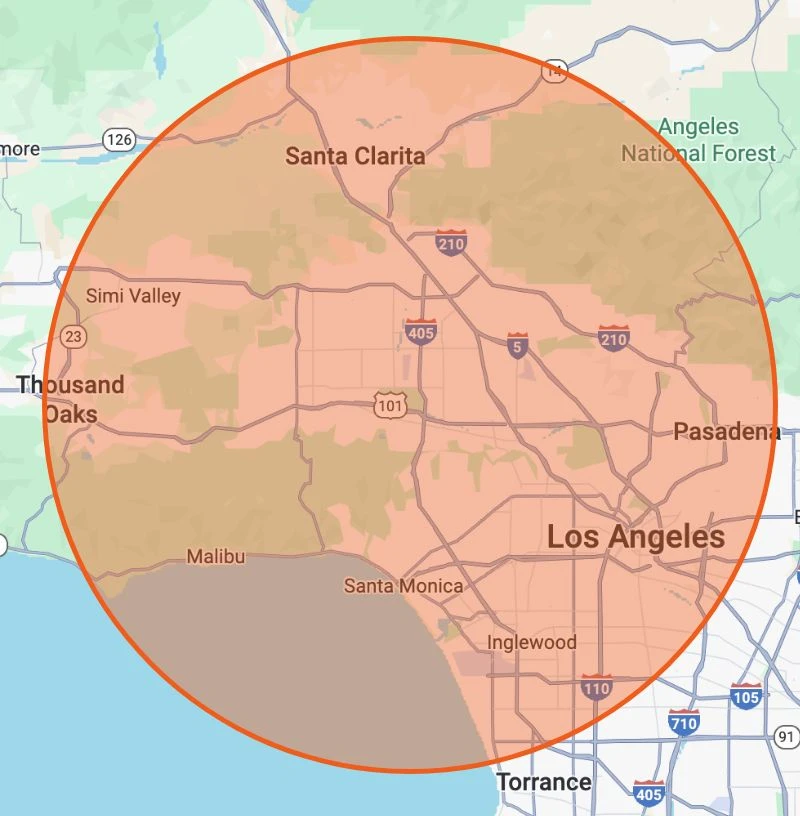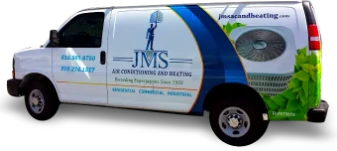Air conditioning replacements are an eventuality in this world. Especially if you depend on yours for beating the heat, you won’t really be able to go back to how life used to be without an AC unit. Well, you can try but we don’t recommend it at all. Many homeowners eventually face the need to replace their AC units as systems age or become less efficient. A properly functioning air conditioning system is essential for keeping your house comfortable during hot weather and preventing discomfort caused by extreme heat. Professional AC replacements are essential for both residential and commercial properties, ensuring proper installation and reliable cooling performance.
If you’re considering a new AC unit, request a free estimate for AC replacement to better understand your options and costs.
Introduction to AC Replacement
When it comes to maintaining a comfortable home environment, having a reliable air conditioning system is essential, especially in Southern California, where temperatures can soar. Over time, even the best air conditioners will begin to show signs of wear, such as higher energy bills, reduced cooling performance, and frequent breakdowns. Recognizing these signs early can help you avoid discomfort and unexpected expenses. Upgrading to a new air conditioning unit not only enhances your home’s air quality and energy efficiency but also ensures consistent comfort throughout the hottest months. Heat pumps are a versatile option, providing cooling air in the summer and heat in the winter, making them an excellent choice for year-round comfort. Consulting with a reputable HVAC company is the best way to assess your current system and determine if replacement is the right move for your property. With expert guidance, you can choose a new system that fits your needs, improves indoor air quality, and delivers long-term value for your California home.
What are the key reasons to replace your HVAC/AC system?
- Your AC is over 10–15 years old and showing signs of aging
- You’re facing frequent breakdowns or recurring repairs
- Repair costs exceed half the price of a new unit
- High energy bills or poor airflow indicate inefficiency
- You seek quieter operation, smart features, or better humidity control
Instead, why not factor into your budget a new air conditioning installation in Los Angeles, CA? Sure, it might sound like a huge expense you’d rather avoid, but air conditioner replacement is a big investment, and it’s important to understand the financial commitment involved. In California, the average costs of AC replacement can vary depending on the type of system and installation requirements, so knowing what to expect can help you plan ahead. HVAC replacement costs can vary significantly, typically ranging between $2,500 to over $45,000 depending on several factors. If you’ve got an AC system that’s running up the bill or constantly causing you stress, then a replacement might actually be the most cost-effective solution you could choose. Learn more about the SEER2 ratings and their impact on AC replacement in Los Angeles, so you can make an informed decision on upgrading. Be sure to request a detailed estimate from your HVAC contractor to understand all potential costs, including any additional work that may be required.
We’re not here to sell you something, we’re here to help our customers make informed decisions about air conditioner replacement by discussing your options and informing you. We want to help you make an informed decision by guiding you through the decision making process involved in air conditioner replacement, including evaluating your current unit to determine whether its age and performance indicate that repair or replacement is the best option. So, let’s learn everything there is to know about air conditioner replacement!
What Is Air Conditioning and Why It Matters
Air conditioning units have become an essential part of modern living, ensuring that our homes and workplaces remain comfortable even during the hottest days. Having access to reliable heating and cooling solutions is crucial for maintaining comfort, especially in regions with extreme temperatures. Air conditioners come in a wide variety of options, including entry-level, mid-range, and high-end units, each with different features, costs, and compatibility with existing ductwork or heating systems. There are several types of air conditioning systems available, each designed to meet different needs. Central AC is a popular option for whole-home cooling, while central air conditioning is also widely chosen for cooling entire homes. Ductless mini split systems offer targeted cooling for specific rooms or areas without the need for ductwork. Heat pumps are another versatile option, providing both cooling and heating capabilities. The HVAC industry has played a significant role in shaping the development, standards, and regulations of modern air conditioning units, ensuring efficiency and compliance with industry norms. HVAC installers bring expertise to ensure proper system setup and compliance with all relevant standards. Understanding how these units operate and the benefits they offer can help you make informed decisions about your air conditioning needs, especially since air conditioning is often part of larger HVAC systems that manage both heating and cooling, ensuring your home stays cool and comfortable all year round. HVAC professionals provide comprehensive installation services for both AC and heating systems, making it easier to get the right solution for your space.
Comparing Different Types of AC Units
When it comes to choosing an air conditioning unit, homeowners have several options, each with its own set of advantages. Central air conditioning units are the most common, using a system of ducts to distribute cool air evenly throughout the entire home. Upgrading outdated AC units to more modern, energy-efficient models with higher SEER ratings can significantly improve comfort and reduce energy costs. When replacing a central air conditioner, it’s important to match the new unit with the existing furnace or heating system to ensure optimal performance and system compatibility. Using high-quality equipment during installation and maintenance is essential for system longevity and overall performance. This type of system is ideal for larger homes or those looking for consistent cooling in every room.
Ductless mini split systems, on the other hand, are perfect for homes without existing ductwork or for adding cooling to specific areas. These units are highly flexible and can be installed in individual rooms, allowing for customized comfort and improved energy efficiency. It is crucial to have experienced professionals install ductless mini split systems to ensure optimal performance and efficiency. In ductless mini split systems, the outdoor unit is connected to one or more indoor units, and proper installation and protection of the outdoor unit are essential for efficient operation and system longevity. It is also important to ensure the indoor unit is placed in a suitable location, away from direct sunlight and with adequate clearance, to maintain efficiency and prevent issues. Heat pumps are another efficient choice, capable of both cooling and heating your home by transferring heat in or out as needed.
When selecting an air conditioning unit, it’s important to consider factors like energy efficiency, initial cost, and the unique cooling requirements of your space, as well as ensuring the system’s proper installation and maintenance for maximum efficiency and longevity. Package units are also a popular option, especially for commercial or industrial spaces, and are often installed on flat roofs to save space and improve efficiency. By understanding the different types of systems available, you can choose the one that best fits your lifestyle and budget.
When Should You Replace Your Air Conditioner?
Here are some common signs that indicate it’s time to consider AC replacement:
We don’t want to just say “replacement is good sometimes,” we want to give you a thorough response to how you might be feeling about replacement. In reality, replacement is a necessity that is going to benefit you if you get it in the right situation and in preparation for your old system to retire. If you’re forced to invest in a replacement because your air conditioner just died, then you’re not going to be as happy as you would be if you had planned it ahead of time.
- Reoccurring or frequent problems. Frequent repairs are especially common in an older system. Older units may experience more broken parts, leading to frequent breakdowns. There’s no need for immediate alarm, this is just another aspect that we expect from an aging air conditioning system. However, it doesn’t take away from the fact that you should still get your unit replaced if it’s becoming a frequent hassle. With older units, it can become difficult to find replacement parts, and the inability to replace broken parts is a clear sign it’s time for a new system. Older HVAC systems may require more frequent repairs, making replacement a more economical option.
- An expensive AC repair. Is your system’s compressor finished? If it is, then you might want to consider replacement just based on the fact that a compressor repair or replacement of this magnitude might be extremely expensive. If the repair cost is high, it may make more sense to replace the unit, especially when considering total repair costs over time. Sometimes, replacing the entire system is more cost-effective than continuing with piecemeal fixes. Also, keep in mind that additional repairs to components like ductwork or electrical connections can increase the total cost and complexity of the installation. Replacing your whole AC unit might be the best use of your own money.
- Poor airflow and uncomfortable conditions. Your air conditioner is a forced-air cooling system, which means it needs to force air into the rooms of your home so you can feel it. If you’re experiencing lukewarm air or air that’s just not getting to where it needs to be, then you might want to replace your AC with a system that can handle the job. If your air conditioner is not working properly, it can lead to discomfort and higher energy costs, making replacement a wise choice. Check out these 5 signs indicating the need for an AC upgrade to see if your system fits the bill. Upgrading to newer models can provide improved efficiency, higher SEER2 ratings, and better warranty coverage compared to older units.
- Consistently high energy bills. Consistently high energy bills show a pattern of inefficiency. This pattern can just be the result of age or wear and tear. To reduce your expenses and increase efficiency, consider these 3 tips to improve your AC’s performance, and decide if a full replacement is the best move for you.
- You’re not happy with your purchase. Simply put, your AC is a purchase that’s designed to keep you comfortable and happy. If you’re neither of those things, then replacing your AC is always a good option to think about. A reliable AC system also contributes to your overall well being.
Air Conditioning Repair vs. Replacement
Deciding whether to repair or replace your air conditioning system can be a tough call for any homeowner. If your air conditioner is relatively new and the issue is minor, like clogged air filters or a simple component malfunction, air conditioning repair is often the most cost-effective solution. Regular maintenance services, such as tune-ups and filter changes, can help keep your system running smoothly and extend its life. However, if your air conditioner is older, frequently breaks down, or struggles to keep your home cool despite repeated repairs, replacement may be the smarter investment. The installation of HVAC systems should consider the home’s construction materials and size to ensure optimal performance and energy efficiency. Newer systems offer improved energy efficiency, which can lower your utility bills and provide more reliable comfort. A professional HVAC technician can evaluate your system’s condition, factoring in repair costs, system age, and overall performance, to help you make an informed decision. By staying proactive with maintenance and seeking expert advice, you can ensure your air conditioning system delivers optimal performance and value for years to come.
How Much Does AC Replacement Cost?
Replacing an air conditioning unit is a significant investment, and installing a new AC unit can provide improved energy efficiency, modern features, and long-term cost savings. HVAC systems typically last between 10 to 20 years, and replacing them around this period can lead to better energy efficiency. HVAC replacement costs typically range from $3,000 to $10,000 or more, depending on the type of unit, the size of your home, and the complexity of the installation. Factors such as system type, installation complexity, and any additional repairs or upgrades required can all influence the overall price. Refrigerant leaks can lead to reduced cooling performance and environmental harm, and the phase-out of R-410A refrigerant has increased repair costs, making it even more important to consider a replacement when issues arise. The average price of an air conditioner replacement is around $8,500, excluding HVAC installation and labor costs. There is a wide variety of air conditioners available, from entry-level to high-end models, and their features such as efficiency ratings, compatibility with existing ductwork, and integration with heating systems can significantly impact pricing. Choosing top brands like Lennox or Trane can ensure long-term reliability, energy efficiency, and superior performance. Several factors can influence the total cost, including labor costs, the need for additional components, and any upgrades to your existing system. The costs associated with HVAC replacement may also include electrical adjustments and proper installation to ensure system efficiency, safety, and longevity. Choosing an energy efficient system, especially one that meets ENERGY STAR standards, may have a higher upfront cost, but it can lead to lower energy bills, long-term savings, and may qualify you for valuable incentives. Working with a reputable HVAC contractor is essential to ensure you get the right unit for your needs, that the installation is done correctly, and to understand the warranty coverage for your new system. By considering all these factors, you can make a smart investment that will keep your home comfortable and help you save money over time, especially if you’re already noticing signs you need an AC upgrade. Reputable providers often offer comprehensive HVAC services, including installation, maintenance, repair, and replacement for both residential and commercial clients. Many also provide plumbing services, such as water heater installation and replacement, to further enhance home comfort and address water management needs.
Selecting a new system can also improve your home’s efficiency and comfort, making it a worthwhile upgrade. To better understand the entire process, it helps to know what happens during AC replacement.
To help manage the cost of a new system, many HVAC providers offer financing options, and you may be eligible for a tax credit or rebates for energy efficient upgrades that can make upgrading more affordable.
Factors Affecting AC Unit Costs
When planning for a new air conditioning unit, it’s important to understand that the overall cost can vary widely based on several factors. The type of air conditioning unit you choose, whether it’s a central air conditioning unit, ductless mini split, or another system, will play a major role in determining the price. Larger units designed to cool bigger spaces will naturally cost more than smaller models. The brand and features of the air conditioner also impact the price, with major brands and units boasting higher SEER ratings (Seasonal Energy Efficiency Ratio) typically coming at a premium due to their superior energy efficiency.
Another key factor is the condition of your home’s insulation. Upgrading your home’s insulation during an HVAC system replacement can increase installation costs, but it also improves overall system efficiency and can lead to long-term energy savings. The quality of the equipment used, including components and materials, will also affect the final price.
Labor costs are another significant part of the equation, as professional installation ensures your new air conditioner operates safely and efficiently. If your home requires electrical upgrades to accommodate a new central air conditioning system, this can add to the overall cost as well. It’s also important to have the wiring inspected and updated as needed to ensure all electrical components of the AC system function properly and to prevent potential issues from faulty wiring. When comparing options, be sure to weigh the initial investment against long-term savings from a more efficient unit. By considering these factors: unit type, size, brand, features, labor costs, home’s insulation, equipment quality, and any necessary upgrades, you can make a smart decision that balances comfort, performance, and value.
Additional Costs to Consider
Beyond the sticker price of a new air conditioning unit, there are several additional costs that homeowners should keep in mind when budgeting for air conditioning replacement. Installation fees can range from $1,000 to $3,000 or more, depending on the complexity of the hvac installation and the specifics of your home. If your current ductwork needs to be modified or replaced to accommodate a more efficient system, this can add another $1,000 to $3,000 to your total cost. Don’t forget about the expense of safely disposing of your old unit, which some hvac companies include in their service, while others may charge extra.
Upgrading to a new hvac system may also require additional components, such as a new air handler or thermostat, to ensure your system operates at peak efficiency. These extra features can improve comfort and performance but will increase your air conditioning replacement costs. By factoring in these installation fees, ductwork modifications, and other additional costs, you’ll have a clearer picture of the total cost involved in replacing your air conditioning unit and can plan your budget accordingly.
Save Energy With a New AC System
One of the biggest advantages of replacing an old air conditioning unit is the potential for improved energy efficiency and lower energy bills. Modern air conditioning units, especially newer systems, are designed to use less energy while delivering the same or even better cooling performance. Energy-efficient systems often entail higher upfront prices but can lead to significant savings on monthly utility bills over time. Newer systems often come with updated manufacturer warranties, providing added peace of mind and making them a better long-term investment. By choosing an energy efficient unit with a high SEER rating, you can significantly reduce your monthly energy bills, especially during peak cooling season. Proper maintenance is essential for ensuring your new AC system continues to operate efficiently and delivers long-term savings.
Not only do efficient units help you save money, but they also reduce your home’s overall energy usage, making them a smart choice for both your wallet and the environment. Many utility companies offer rebates or incentives for installing energy efficient air conditioning units, which can help offset the initial cost of your new HVAC unit. When shopping for a replacement, pay close attention to the SEER rating and look for models that are ENERGY STAR® certified. Selecting a new HVAC unit that is properly sized and professionally installed ensures optimal energy savings and comfort. Investing in a new, efficient unit is a great way to keep your home cool and comfortable while keeping your energy bills in check.
Insulation and AC Performance
Proper insulation is a critical factor in maximizing your air conditioning system’s performance and efficiency. Insulation acts as a barrier, keeping cool air inside during the summer and heated air inside during the winter, which helps your system maintain a comfortable temperature with less effort. Upgrading areas like attic insulation, crawl space insulation, and air duct insulation can significantly reduce heat transfer, easing the workload on your air conditioner and lowering your energy bills. Not only does this help your AC system last longer, but it also improves indoor air quality by minimizing the entry of outdoor pollutants. When planning for an air conditioning replacement, it’s wise to assess your home’s insulation and make any necessary improvements. Investing in quality insulation ensures your new system operates efficiently, keeps your home cool during the summer and warm in the winter, and supports a healthier indoor environment all year round.
How Ductwork Affects AC Replacement
When you’re replacing your air conditioning unit, it’s essential not to overlook the condition of your home’s ductwork. Even the most advanced central air or ductless mini split system can’t perform at its best if your ducts are old, leaky, or improperly sized. Damaged or inefficient ductwork can lead to hot or cold spots throughout your home, uneven cooling, and higher energy costs. In some cases, upgrading to a new unit may require modifications or even a complete replacement of your ductwork to ensure your system operates efficiently.
If you’re considering a ductless mini split, you can bypass many of the issues associated with traditional ductwork, as these systems deliver cool air directly to specific areas. However, for central air systems, having your ductwork inspected and, if necessary, repaired or replaced is a crucial step in the replacement process. While this can add to the overall cost, it’s an investment in the long-term performance and comfort of your new unit. By addressing ductwork issues during your air conditioning replacement, you’ll enjoy more consistent temperatures and a more efficient system throughout your home.
What to Expect During AC Installation
The process of installing a new air conditioning unit often starts with evaluating whether you should repair or replace for your needs. During this initial step, a thorough consultation with an experienced HVAC contractor will assess your home’s size, layout, and specific heating and cooling needs to recommend the best system for you. A Manual J calculation is essential at this stage to accurately determine the correct system size and capacity, ensuring your HVAC unit is properly matched to your home for optimal performance and energy efficiency. On installation day, the old unit is carefully removed, and the new HVAC unit, whether an air conditioning unit or a heat pump as an alternative to traditional AC units, is installed and connected to your home’s ductwork and electrical system. Many HVAC contractors also provide heating repairs as part of their comprehensive services, ensuring your entire system is functioning optimally. Depending on the complexity of the job, the installation can take anywhere from a few hours to a couple of days. It’s crucial to choose a contractor with extensive HVAC knowledge to ensure the installation is done right, as a properly installed system will efficiently cool your home and help reduce energy costs. With the right team and a well-executed installation, your new air conditioning unit will keep your home cool and comfortable for years to come.
How to Choose the Best AC for Your Home
Selecting the right air conditioning unit for your home can feel overwhelming, but focusing on a few key factors can make the decision easier. Start by evaluating your current system to determine if a replacement or repair is needed, and then consider the energy efficiency of each unit, as a more efficient system can help lower your energy bills and save money in the long run. The SEER rating (Seasonal Energy Efficiency Ratio) is a useful measure of a unit’s efficiency, the higher the SEER rating, the more energy efficient the system. Modern air conditioning systems usually have a SEER rating above 20, making them significantly more efficient than older models. Upgrading to a new system can provide long-term benefits, including improved comfort and reduced maintenance costs. It’s also important to choose a unit that’s appropriately sized for your home; an undersized unit may struggle to keep your home cool, while an oversized unit can lead to unnecessary costs. Consulting with a trusted HVAC contractor can help you evaluate your home’s specific needs and find a unit that fits your budget and comfort requirements. These professionals can also assist with heater repair, ensuring your home’s comfort year-round.
When selecting or upgrading HVAC systems, ensure compatibility between the new system and your existing home infrastructure, including furnaces, for optimal heating and cooling performance and efficiency. Professional installation is essential to prevent hazards such as gas leaks and carbon monoxide exposure, which can result from faulty systems. Additionally, Southern California’s unique climate requires HVAC solutions that can handle both hot summers and mild winters, making it important to choose a system tailored to the region’s needs. By taking these factors into account, you can enjoy a cool, comfortable home and peace of mind knowing you’ve made a smart investment.
Finding a Reputable HVAC Company
Choosing the right HVAC company is essential for ensuring your air conditioning system is installed, maintained, and repaired to the highest standards. A reputable HVAC company will have experienced technicians who are skilled in everything from heater installation to air conditioning repair and routine maintenance services. Certifications from recognized organizations like North American Technician Excellence (NATE) indicate advanced training for HVAC technicians, ensuring they are well-equipped to handle complex systems. Look for companies that are fully licensed and certified, with positive customer reviews and a proven track record of reliable service. Top providers offer priority service, free estimates, and flexible financing options to make their services accessible for any budget. They also provide regular tune-ups and inspections to help extend the life of your system and keep it running efficiently. By partnering with a trustworthy HVAC company, you can rest assured that your air conditioning and heating systems are in expert hands, ensuring comfort and peace of mind for your home or business.
DIY vs. Professional AC Replacement
While the idea of replacing your air conditioning system yourself might seem like a way to save money, the reality is that AC replacement is a complex job best left to professionals. Air conditioning systems involve intricate components such as refrigerant lines, circuit breakers, and ductwork, all of which require specialized knowledge and tools to handle safely. Improper installation can lead to reduced system performance, higher energy bills, and even safety hazards like electrical issues or refrigerant leaks. Technicians handling refrigerants must have an EPA Section 608 Certification to ensure safe and compliant handling of these substances. Professional HVAC technicians have the training and experience to ensure your new system is installed correctly, maximizing efficiency and extending the life of your investment. Additionally, many manufacturers require professional installation to maintain warranty coverage. By choosing expert installation, you not only protect your home and family but also save money in the long run by avoiding costly repairs and ensuring your system operates at peak performance for years to come.
Maintenance and Repair After AC Replacement
Once you’ve invested in a new air conditioning system, keeping it in top shape is the best way to protect your investment and ensure your home stays comfortable year-round. Regular maintenance is essential for any new AC unit, as it helps maintain peak performance, keeps energy bills in check, and extends the lifespan of your system. Regular maintenance can extend the life of an HVAC unit, potentially delaying the need for replacement. A well-maintained AC system is less likely to experience unexpected breakdowns or require costly repairs, saving you more money and stress in the long run.
Routine maintenance tasks include changing or cleaning air filters every one to three months, checking and cleaning the outdoor unit to remove debris, and ensuring that air ducts are free from dust and blockages. These simple steps can make a big difference in your system’s efficiency and the overall air quality in your home. Scheduling annual inspections with a licensed HVAC contractor is also highly recommended. During these visits, HVAC professionals will check refrigerant levels, inspect electrical components, and make sure your AC system is running as efficiently as possible.
Staying on top of maintenance not only helps prevent costly repairs but also ensures your air conditioning system continues to deliver clean, cool air throughout your home. Proper care can also help you spot minor issues before they turn into major problems, reducing the risk of system failures during the hottest days of the year.
If you notice any changes in your AC unit’s performance, such as unusual noises, reduced airflow, or higher energy bills, it’s important to schedule a repair with a trusted HVAC service provider right away. Prompt attention to repairs can prevent further damage and keep your system running smoothly.
By prioritizing regular maintenance and timely repairs after replacing your air conditioning unit, you’ll enjoy better air quality, lower energy bills, and peace of mind knowing your new system is built to last. For expert advice and ongoing support, don’t hesitate to reach out to your local HVAC professionals.
For the next steps when considering an AC replacement, contact JMS Air Conditioning and Heating.












